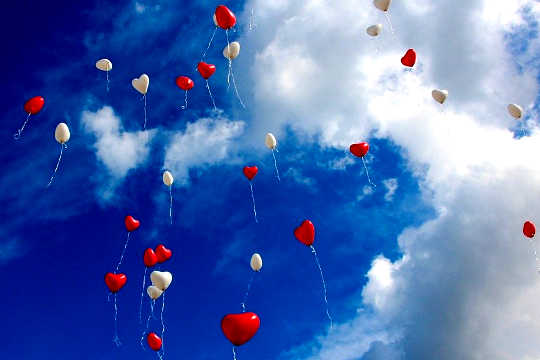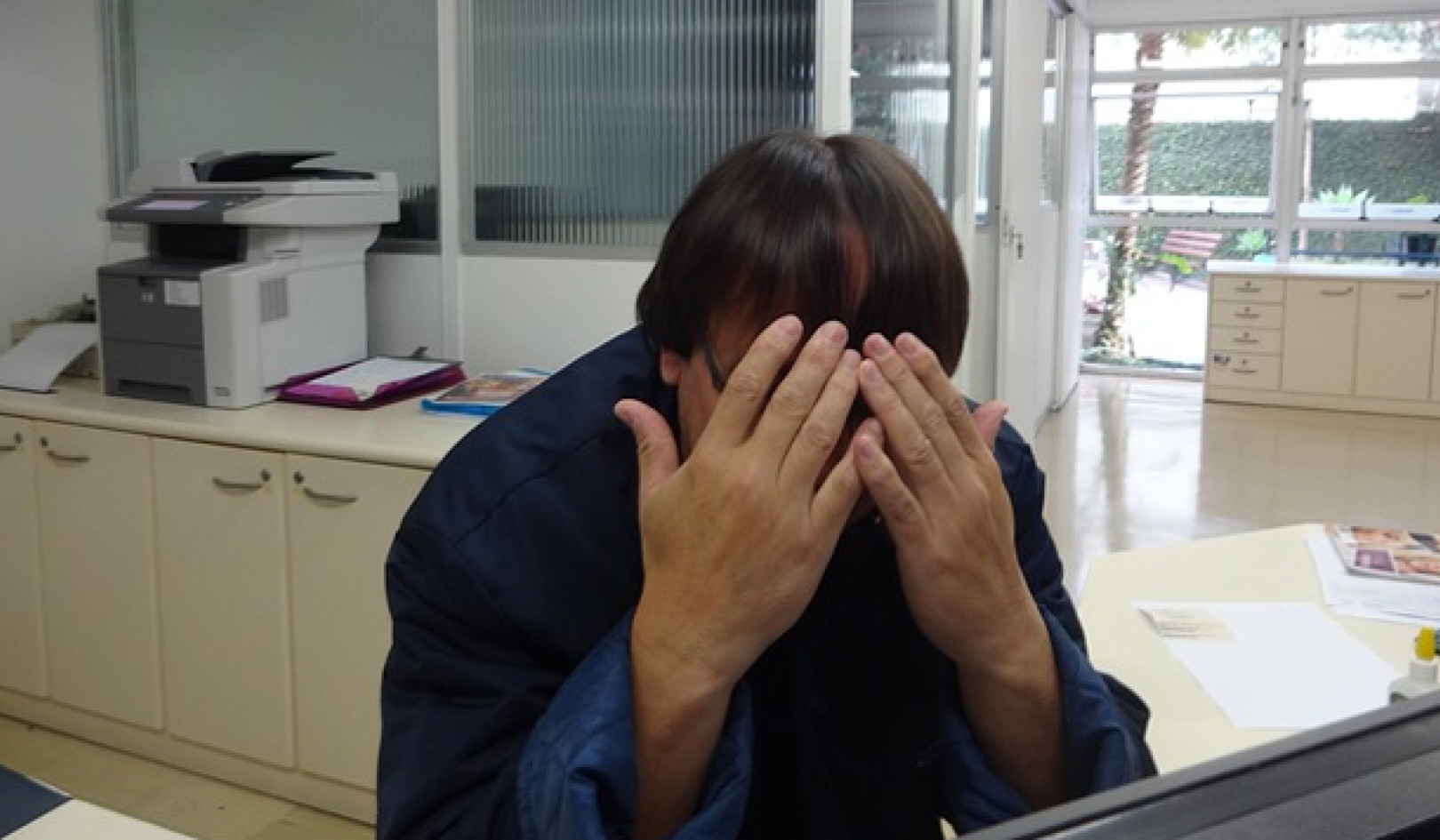
Image by Peggy und Marco Lachmann-Anke
Love is built into the core of our being. We could even say we are made of love.
Exploring love is the means by which we seek and find Unity. We can no more be separated from love than our bodies can be separated from the act of breathing. While some individuals may go for long periods of time between breaths, they eventually inhale and exhale. The same is true of love. Some people may hold back their love, but eventually it seeps out, sometimes in distorted ways and other times in beautiful forms.
Confusing Liking and Loving
In our society we have confused liking with loving. We are taught when we really, really like something, we say we love it. Which means if I don’t like something, then there’s no way I can love it. This use of language distorts and limits our view, trapping us in the fallacy of love being equated to pleasure.
Those of us who know love, deep unconditional love, know love is not always pleasurable. It’s painful to watch the planet we love be mistreated, just as it’s painful to watch a torrential rainstorm destroy a town, or a person we love hurt themselves or others. Do we stop loving because it is painful? Is that even possible?
Love Is the Act of Giving What Is Needed
Love is not about the object; rather love is a dynamic activity in which we participate. Love is the expression of our very being. The focus and quality of our act of loving may change from object to object; however we will consistently seek to communicate love in whatever way we are capable. No matter how disconnected we feel, we cannot stop the innate impulse to love.
This impulse to love can become distorted, and this distortion can cause us and others to suffer. To purify our expression, we can work on our ability to love in all aspects of life. In its most basic sense, love is the act of giving. When love is pure, we give with a sense of concern, responsibility and respect; we pay attention and learn to give what is needed.
Giving of love (or time or money or anything) is best done selflessly; otherwise it has the potential to degenerate into resentment and lead to misery. When we give with no expectation of return, we move into high, beautiful mind-states as a by-product.
Love Is Not A Business Transaction
We give simply because it feels right to give and we have enough extra to give. If we give to get, then it becomes a business transaction, and the beauty of the act is lost in our judgments of whether or not we decide we got a good deal.
This is why so many relationships fail – people treat them like business transactions. They think intimacy is a commodity to be bought and sold.
Intimacy is a feeling, a state shared by two people that they create together. There's no dollar value that can be placed on it, and nothing you can trade to get it. Intimacy grows out of love, trust, respect, and by learning about our beloved.
Love does not mean to seek out others who are the same as us, or in any way deny our unique differences. Rather it is a celebration of both our individuality and our unity; it is the recognition we are something greater than our shared and disparate qualities.
Self-Love Is The Foundation for All Expressions of Love
As we explore, we discover self-love is the foundation for all expressions of love. Without self-love, we deny our own needs. We may try to give, but we see it as an investment with the idea we will somehow be taken care of or be seen as wonderful (even if only in our own mind) in return for our generosity.
Alternatively, we can become selfish and shut down when we are around others. When we do these things, we are vainly trying to cover up feelings of self-contempt and self-loathing by denying ourselves the opportunity to have a loving relationship with another human being.
Those who struggle with self-love often experience issues with its subsidiaries of self-respect, self-confidence, self-trust and self-knowledge. While there are challenges in all relationships, which can cause us to lose energy and be drained in dozens of different ways, the solution is always the same: self-love.
When we love ourselves, we investigate ourselves and our needs honestly and we develop self-knowledge. This builds self-respect and makes it so we won't put up with anyone abusing us. When we love ourselves, we have self-confidence which allows us to go back out into the world after being hurt by an abuser. When we love ourselves, we have self-trust so we rely on ourselves to know what is in our best interest. And when we love ourselves, we can extend that love to others without reservation.
Love Overcomes Hate
The Buddha taught only love overcomes hate. We can learn a great deal about love by looking closely at what we think we hate. When we look at how those qualities reside within our own mind, as seeds or perhaps as full expressions, we see how we have denied parts of ourselves.
We can look at those aspects of our own being with care, respect and responsibility. We learn about them, and what insecurities they represent. In this way, we start to love even those dark aspects of our nature. This in no way condones abusive or harmful behavior; rather it allows us to recognize it as a distortion of love, and we can learn and grow from it.
Being An Active Giver of Love
Love is not something that happens to us; it’s an activity which requires participation. When we approach love in this way, we can stop passively waiting for love to save us. We move towards taking an active role in adjusting our attitude and orientation to being an active giver of love.
Learning to make every thought one of love can begin with any object; it can begin with someone or something outside of us or it can begin with our own being.
We start by finding something that inspires us to open our heart, move past the fear, and give love. We do our absolute best to give purely, without motive.
Through this practice, we discover we feel love only when we give it. And when we experience the purity of giving unconditional love, we realize in that moment of loving when we love anything, we love everything.
Practice Pointer
Take a moment to consider: Who or what do you love?
Excerpted from the book: Unreasonable Joy by Tur?ya.
Reprinted with permission from the publisher, Electric Bliss.
©2020 by Jenna Sundell. All Rights Reserved.
Article Source
Unreasonable Joy: Awakening through Trikaya Buddhism
by Tur?ya
 Unreasonable Joy: Awakening through Trikaya Buddhism, points the way towards Enlightenment and liberation from suffering. We suffer through tragedies and the daily grind of eat-work-sleep, chasing happiness but finding fleeting pleasure. Built on the foundations of ancient wisdom, a new school called Trikaya Buddhism promises freedom from the suffering of this wearisome cycle.
Unreasonable Joy: Awakening through Trikaya Buddhism, points the way towards Enlightenment and liberation from suffering. We suffer through tragedies and the daily grind of eat-work-sleep, chasing happiness but finding fleeting pleasure. Built on the foundations of ancient wisdom, a new school called Trikaya Buddhism promises freedom from the suffering of this wearisome cycle.
For more info, or to order this book, click here. (Also available as a Kindle edition.)
About the Author
 Tur?ya is a Buddhist monk, teacher, and author who, despite living with chronic pain, founded the Dharma Center of Trikaya Buddhism in San Diego in 1998 to share her path. For over 25 years, she has taught thousands of students how to meditate, trained teachers, and helped people discover the unreasonable joy of our true nature. For more info, visit dharmacenter.com/teachers/turiya/ as well as www.turiyabliss.com
Tur?ya is a Buddhist monk, teacher, and author who, despite living with chronic pain, founded the Dharma Center of Trikaya Buddhism in San Diego in 1998 to share her path. For over 25 years, she has taught thousands of students how to meditate, trained teachers, and helped people discover the unreasonable joy of our true nature. For more info, visit dharmacenter.com/teachers/turiya/ as well as www.turiyabliss.com






























